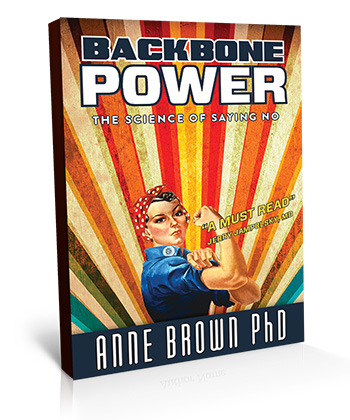
Probably the one area we can all agree is the idea that “these are contentious times.” What do contentious times in our country (if not the world), mean to the codependent?
First let’s go back to our definition of codependency: Codependency is learned personality traits that negatively affect knowing one’s self and others. Codependents become dependent on “others’” approval and attempt to control the situation in order to get this approval. Codependents often avoid honesty and confrontation, which can enable abusive behavior.
Contentious Times and Codependency Work
For this article, the last distinction is most important for us to look at. By avoiding confrontation, the codependent does not require the abusive person to change or improve. If the codependent’s only tool is to avoid confrontation during contentious times – “Houston we have a problem.”
Am I recommending we all start being contentious? NO! I have always maintained if we can access indignation early on, many situations would never have to go to anger, or even worse, rage.
If we grew up in contentious families where we experienced lots of fighting, this time in our country can bring back memories. We were children who had to figure things on our own, so many of us chose some form of codependency. Fast-forward to this contentious time and, if we haven’t done our codependency work, we may find ourselves needing a few more tools.
Where Are We At Risk?
Let’s look at some places the codependent is at risk during contentious times:
- Anxiety
 Public and private places can be volatile, unpredictable, intimidating, and scary during this time. People report yelling, screaming, and people walking out at social gatherings. One example that comes to mind is a well-reported plane incident with a verbally abusive passenger and the slow-to-action airline personnel. Other plane incidences are being reported as we speak. People minding their own business driving their cars report being attacked. People walking, going to class or work have been attacked/accosted. Children report being threatened, bullied, shamed or hurt. Anxiety has skyrocketed, with people not knowing what to do as either a victim or witness. Many people are paralyzed at the time, pretending it isn’t happening. If our only tool is to pretend it isn’t happening by avoidance, this is going to be a very anxious time for us – with anxiety winning.
Public and private places can be volatile, unpredictable, intimidating, and scary during this time. People report yelling, screaming, and people walking out at social gatherings. One example that comes to mind is a well-reported plane incident with a verbally abusive passenger and the slow-to-action airline personnel. Other plane incidences are being reported as we speak. People minding their own business driving their cars report being attacked. People walking, going to class or work have been attacked/accosted. Children report being threatened, bullied, shamed or hurt. Anxiety has skyrocketed, with people not knowing what to do as either a victim or witness. Many people are paralyzed at the time, pretending it isn’t happening. If our only tool is to pretend it isn’t happening by avoidance, this is going to be a very anxious time for us – with anxiety winning.
- Depression
As our anxiety increases about going out, what will we do? Avoid? The downside is that we may avoid the very connections we need to get us through these turbulent times. If we agree with side A when we are with them, and side B when we are with them, we have a real mess. Avoiding situations where everyone might be together could be an immediate answer, but it won’t be in the long run. If simple dinner parties can end up in a screaming match, we may choose to isolate ourselves. Now we are at risk for anxiety and depression. - Triggering
Many people report flashbacks and triggering to bad memories in the past. If we grew up in a family with lots of fighting, screaming, yelling, and physical or sexual abuse, the contentiousness of our country today can trigger and paralyze us. The feelings of being a little child – vulnerable and impotent – take over and we may forget we are now adults with new tools. If we chose to numb ourselves when we were younger, it is important to remember that is not a choice for us now. We have a larger tool box and we can get help when we need more tools. - Trapped
Many of us can avoid some of the known places of contentiousness, but what if our family, work or school is filled with constant fighting? Practically, we don’t have the choice to not go home or to school and/or work and, thus, another old feeling called “trapped” may surface. As a child, living in a home with abuses always creates a feeling of being trapped. We can spend our spare time playing sports, work, hanging out at friends’ houses – anyway we can to avoid our abusive home – but in the end, we feel trapped because we know our home is where we must eventually check in. We can’t change that fact. If we are attending a contentious school or going to a contentious workplace, we are going to feel that old trapped feeling. Again, choosing to numb ourselves is not an option. - Impotent
With an increase in crime during these contentious, people begin asking ‘what do I do if I am there when something bad happens?’ Pretending it isn’t happening is probably not an answer you are going to see me use. The first step is to acknowledge we feel impotent. If our child is bullied, someone yells at us, or someone accosts a friend in front of us, how do we handle these situations? Asking this question is the first step. Changing your body to take a different action is the next step.
These are times in which we are being called upon to be our best selves. We may be scared, numb, or paralyzed, but we can open our tool box and move higher during times of stress, rather than allowing ourselves to be a victim and go lower. It’s your choice.
**Part II of this series will offer practical solutions to situations.
This article was originally published on Recovery.org



 Facebook
Facebook LinkedIn
LinkedIn Twitter
Twitter Youtube
Youtube StumbleUpon
StumbleUpon
Leave a Reply